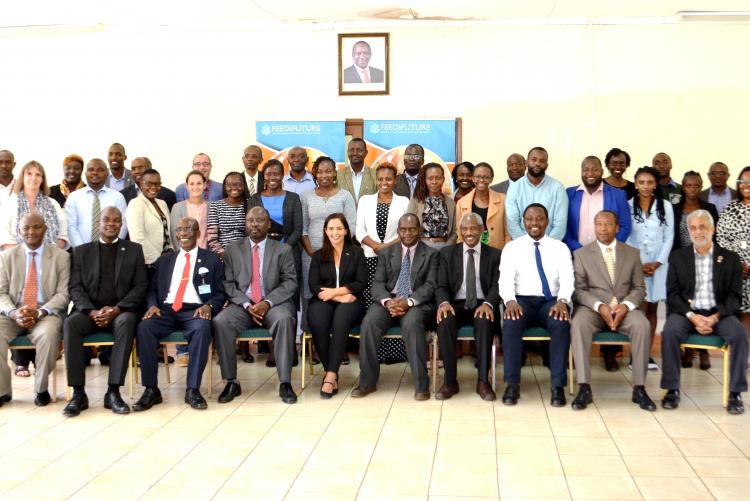University of Nairobi's Faculty of Veterinary Medicine launched a state of the art Animal Health, Molecular and Diagnostics laboratory that's hosted by the Department of Clinical Studies. The Lab is a collaborative initiative between the University of Nairobi and Washington State University through the Feed the Future programme. In his opening speech, the Vice Chancellor Prof. Stephen Kiama said that the programme fosters a strong inter-institution collaboration and provides an excellent opportunity for research, training and capacity development which is consistent with the university’s mandate of providing quality University education through teaching and learning, research and community service. He was represented by the Deputy Vice Chancellor, Academic Affairs, Prof. Julius Ogeng’o.
He also thanked the United Sates Government through the United States Agency for International Development (USAID) Bureau for Resilience and Food Security (RFS) for their generous support towards the establishment and implementation of the Feed the Future Innovation Lab for Animal Health.
In his speech read by a representative, the Principal Secretary, State department of Livestock, Harry Kimutai, said that through research, the lab would help reduce the effects of East Coast Fever, a disease which causes massive amounts of losses to farmers due to cattle death.
The Feed the Future Innovation Lab for Animal Health aims to improve the control of East Coast fever, a major impediment to the establishment and growth of cattle in Eastern, Central, and Southern Africa. The impact of this disease to the livestock sector is devastating, with an estimated more than one million cattle dying from the disease annually in the region, and substantial losses in beef, milk and cost of treatment.
- Log in to post comments

